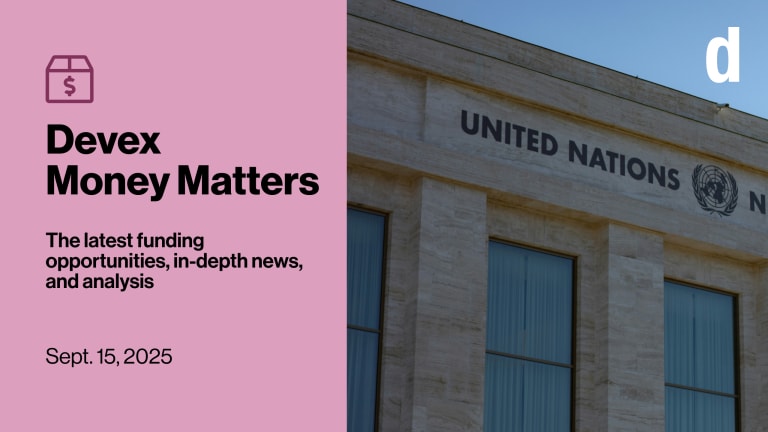
LONDON — Major donors are increasingly spending foreign aid on short-sighted national interest priorities, according to research from the Overseas Development Institute.
In a trend that began before the pandemic, data analyzed by the researchers suggested “less cohesion and unity ... on the merits of principled aid” among members of the Organisation for Economic Co-operation and Development's Development Assistance Committee, which sets the standards for aid spending.
The data was analyzed as part of ODI’s annual principled aid index, which explores how and why bilateral donors spend aid.
Ireland took the top spot in this year’s index, followed by Norway, Sweden, Canada, and Luxembourg. Slovakia, Greece, Hungary, Poland, and Slovenia made up the bottom five. The U.K. came in 10th and the United States 13th.
The report pointed to “falling public-spiritedness scores across most donors.”
“Until now, countries have reacted to the pandemic as though they were in a plane in freefall, securing their own oxygen masks before helping others.”
— Nilima Gulrajani, co-author, ODI’s annual principled aid indexHowever, co-author Nilima Gulrajani said the highest-ranking donors saw their scores fall the most. “All donors are doing poorly but highly ranked countries had their score decline more than the worst scorers. Ireland took first place on public spiritedness even though its score declined on every indicator,” she said.
The index examined the spending of 29 governments. It measured principled aid based on “public spiritedness,” in which “aid is not allocated towards activities that advance narrow, short-term interests that have limited positive spillover effects for other nations,” global cooperation, where “aid is allocated to global challenges requiring collective action and multilateral institutions that facilitate cooperation,” and if aid was spent where it was most needed.
The researchers identified three key pressures causing a downward trend on principled aid spending: The pandemic, which “upended donor mandates and altered their operational practices,” the increasing rift between the U.S. and China which is “threatening global consensus-building” and “aid nationalism, which demands that visible mutual benefits accrue to providers and recipients of assistance.”
The researchers called for a change in donor behavior to a more “principled nationalism” to deal with the economic turmoil caused by the pandemic, which is believed to have pushed millions into poverty.
“All countries now need to collectively focus on addressing the systemic global inequalities laid bare by the coronavirus crisis, and the tenets of principled nationalism can guide these efforts,” Gulrajani said. “Until now, countries have reacted to the pandemic as though they were in a plane in freefall, securing their own oxygen masks before helping others. While perhaps an understandable first response, donors must now urgently look to assist others in need."








